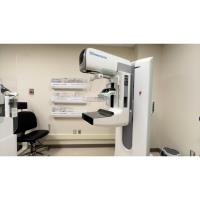-
Mammograms | 4 things you should know
Oct. 1, 2024
Contact: Dawn Bryant
Tidelands Health
(843) 652-1636
dbryant@tidelandshealth.org
News for Immediate Release:Mammograms | 4 things you should know
Mammograms play a crucial role in women’s breast health. Staying up to date on your screenings is important for all women, regardless of race/ethnicity and risk of breast cancer. According to a recent study, patients who regularly have screening mammograms may have a reduced risk of breast cancer mortality.
Remember these tips when planning your next mammogram:
When should I get a mammogram?
This depends on your age. If you have no family history of breast cancer, Tidelands Health recommends getting your first mammogram at age 40. From there, annual exams are vital to catching cancers when they are small and easily treated, according to Dr. Angela Mislowsky, a breast cancer surgeon at Tidelands Health Breast Center.
“We have seen cancers develop in patients of average risk within a year,” Dr. Mislowsky said. “Mammogram is the most bang for your buck and the most beneficial screening test that we have for breast cancer.”
Follow along with a patient getting her first mammogram: https://youtu.be/WwwOQobrDZc?feature=shared
What if I have a family history of breast cancer?
Women with a family history of breast cancer need to start their screening earlier, typically in their late 20s or early 30s, Dr. Mislowsky said.
“Some of that has to do with catching it at an earlier stage,” she said. “That makes it easier to treat.”
Patients in their early 20s and younger, however, don’t typically qualify for mammogram screenings because their breast tissue is too dense to make screening effective.
Why is dense breast tissue a concern?
Breasts are made up of milk glands, supportive tissue and fatty tissue. Dense breast tissue is not uncommon, particularly among young women, and doesn't mean there's anything wrong.
The chief concern is that dense breast tissue can make it hard to get an accurate image of the breast’s interior. Dense breast tissue and cancer tumors both look white on mammograms. Fatty breast tissue, which increases as women age, looks transparent on a mammogram image, making it easier to detect tumors.
3D mammography, which takes images of the breast from multiple angles, helps to overcome the challenge posed by dense breast tissue, Dr. Mislowsky said. Other tests, such as an MRI or ultrasound, can help overcome dense breast tissue.
How can I lower my risk of breast cancer?
Along with annual screening, women can take steps to reduce their chance of developing breast cancer. At the top of the list is maintaining a healthy weight and getting regular exercise to stay in good health. Eating a diet low in fat, avoiding tobacco and limiting alcohol intake are also important to avoiding the conditions that can promote breast cancer, Dr. Mislowsky said.
Ready to schedule a mammogram? Easily schedule online via the My Tidelands Health app, or call 1-866-TIDELANDS.
###
About Tidelands Health
Tidelands Health, in collaboration with MUSC Health, is the region’s largest health care provider, serving the Carolinas at four hospitals and more than 70 outpatient locations. More than 2,500 employee, physician and volunteer partners work side by side with our communities to transform the health of our region – promoting wellness, preventing illness, encouraging recovery and restoring health.Tidelands Health
-
Dawn Bryant Director Strategic Communications
- October 07, 2024
- 8436521636
- Send Email
-
-
-
Georgetown County Chamber of Commerce
-
PHONE | 843.546.8436
Mailing Address: 531 Front St, Georgetown, SC 29440
Locations: 531 Front St., Georgetown, SC 29440
28 Wall St., Pawleys Island, SC 29585
© Copyright 2020 Georgetown County Chamber of Commerce. All rights reserved.
site by ChamberMaster









